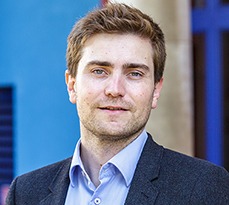Employee ‘hyperflexibility’ can institutionalise burnout and cause inequity by shifting workload to colleagues who don’t take leave, says article in MIT Sloan Management Review co-authored by Dr Thomas Roulet of Cambridge Judge Business School.

Forced time off and employee “hyperflexibility” may seem beneficial, but in practice it can institutionalise burnout and cause inequity because more committed workers take on the workload of those taking leave time, says a new article in MIT Sloan Management Review co-authored by Dr Thomas Roulet, Associate Professor in Organisation Theory and Deputy Director of the MBA Programme at Cambridge Judge Business School.
“While unlimited and forced PTO (paid time off) policies may seem to be a good idea in the shift to flexible work and in today’s competitive hiring landscape, the reality is that they may cause more harm than good,” the article concludes.
Such flexible policies designed to benefit workers can actually become a new source of anxiety, because employees may worry about how much time they can “safely take without being perceived as a slacker by their managers or co-workers,” thus reinforcing employees’ guilt about the time they do in fact take off.
“Making hyperflexibility the norm may thus risk institutionalising burnout,” and can “unfairly (if unintentionally) penalise some employees when co-workers take time off, and shift their workloads to the colleagues left behind.”
The article in MIT Sloan Management Review – entitled “How Hyperflexibility Can Benefit – or Burn Out – Your Team” – is co-authored by Zahira Jaser, Assistant Professor and Deputy Director of the MBA programme at the University of Sussex Business School, and by Thomas Roulet, Associate Professor in Organisation Theory and Deputy Director of the MBA programme at Cambridge Judge Business School.


